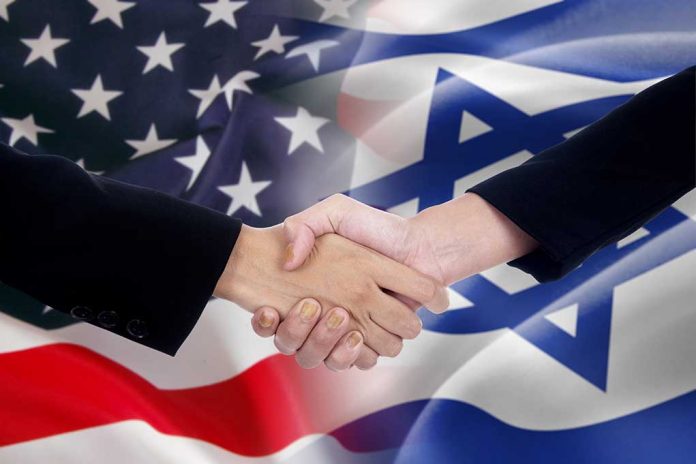
The U.S. decision to continue military support for Israel amid Gaza’s humanitarian crisis raises questions about foreign aid policies.
At a Glance
- The U.S. continues arms support to Israel despite dire conditions in Gaza.
- Food and medical aid to Gaza are at historically low levels.
- The U.N. and aid groups report severe humanitarian failings.
- There are international calls for the U.S. to reassess military aid policies.
U.S. Military Support Amid Crisis
The United States has opted not to impose sanctions on Israel following a failure to significantly improve the delivery of aid into Gaza, despite a 30-day ultimatum. Aid groups accuse Israel of obstructing humanitarian efforts, while Israel attributes limited aid flow to security concerns and religious closures.
Israel emphasizes that restricting aid is essential to prevent resources from falling into the hands of Hamas, a terrorist organization that often diverts humanitarian aid to support its militant activities rather than aiding civilians. Supporting Israel’s security also aligns with U.S. interests, as Israel is a key ally in maintaining stability in the Middle East.
This decision comes as aid shipments reach some of the lowest levels since the conflict reignited, with the U.N. noting a drastically reduced entry of supplies. Reports point to restrictions by the Israeli military and criminal elements, with significant portions of aid being stolen, affecting not only availability but also distribution within Gaza.
International Concerns and Criticisms
The international community, led by bodies like the U.N., highlights the gravity of the situation. The World Health Organization warns of severe famine risks in northern Gaza exacerbated by ongoing military actions. Germany and other states have voiced their concerns publicly, urging for humanitarian aid to be protected and military aid policies to be reevaluated.
Israel asserts that its defensive actions are targeted specifically at eliminating terrorist threats from Hamas, whose aggression has endangered both Israeli and Palestinian lives. Many conservatives support Israel’s stance, advocating that the U.S. continue to stand firmly with Israel in its right to self-defense and to ensure the safety of its citizens.
“We are witnessing acts reminiscent of the gravest international crimes, conditions of life across Gaza are unfit for human survival,” Joyce Msuya, the U.N.’s acting humanitarian chief, has said.
While Israel contends to have taken steps towards ameliorating the situation, critics, including U.N. representatives, emphasize ongoing interference in aid efforts, which compromises the humanitarian response significantly.
Repercussions and Forward Path
Many argue for a reassessment of U.S. military aid practices, urging that humanitarian considerations be prioritized. Aid agencies have been unwavering in their condemnation of how the situation has been handled, pressing for further evaluations and protective measures for civilians affected.
However, many also recognize that Israel is working within complex security constraints, and they argue that America’s support is crucial for countering terrorism in the region. Ensuring Israel’s strength is seen as essential for regional stability, and conservatives emphasize that U.S. aid should bolster allies committed to both democracy and the fight against terrorism.





